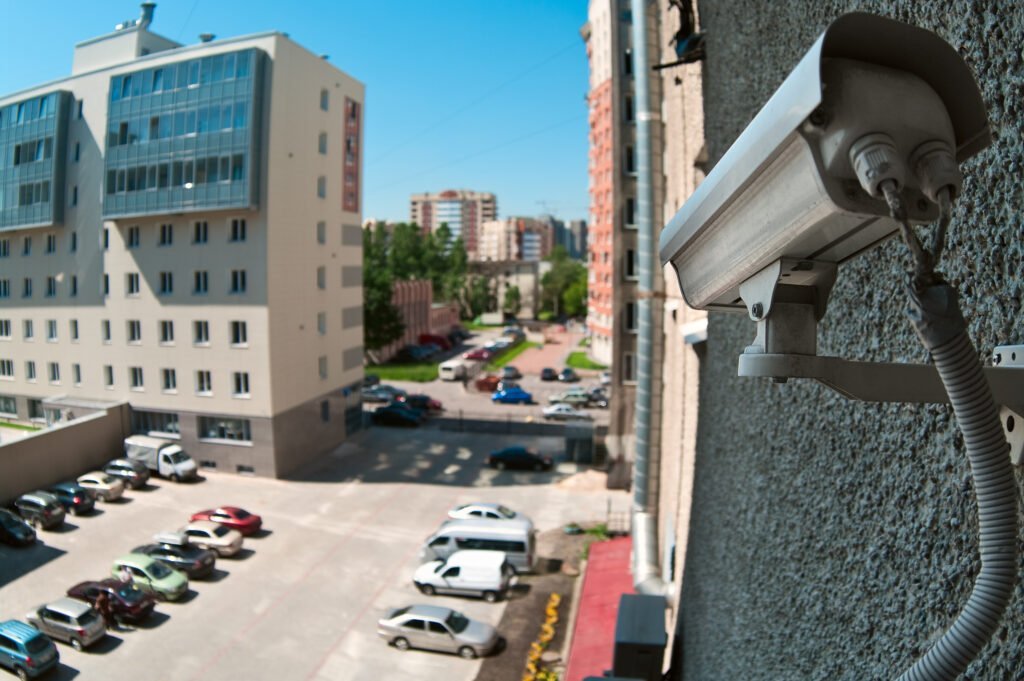Introduction
Security cameras have become increasingly popular in both residential and commercial settings. They provide a sense of security and can act as a deterrent to potential criminals. However, the use of security cameras raises important questions about privacy. It is essential to strike a balance between security and privacy concerns when installing and using security cameras. In this article, we will explore some key considerations to keep in mind when it comes to security cameras and privacy.
1. Location and Coverage
The first consideration is the location and coverage of the security cameras. It is crucial to ensure that the cameras are strategically placed to capture the desired areas while minimizing any intrusion into private spaces. Avoid pointing cameras directly into neighboring properties or areas where individuals have a reasonable expectation of privacy, such as bedrooms or bathrooms.
Additionally, it is important to clearly define the purpose of the cameras and limit their coverage to areas necessary for security purposes. This helps to avoid any perception of excessive surveillance or invasion of privacy.
2. Notice and Consent
Informing individuals about the presence of security cameras is essential to maintain transparency and respect privacy rights. Posting visible signs indicating the use of surveillance cameras can help to alert people to their presence. This allows individuals to make informed decisions about their actions and whether they are comfortable being recorded in a particular area.
Furthermore, obtaining consent from individuals before installing cameras in private spaces, such as inside a home or office, is crucial. This ensures that privacy expectations are respected and that individuals have the opportunity to object if they are uncomfortable with being recorded in certain areas.
3. Data Storage and Access
Another important consideration is how the recorded data is stored and accessed. It is essential to have secure storage systems in place to protect the recorded footage from unauthorized access or misuse. Implementing encryption and password protection can help safeguard the data and prevent it from falling into the wrong hands.
Access to the recorded footage should be limited to authorized individuals who have a legitimate need to view the footage, such as law enforcement or security personnel. Establishing clear protocols and guidelines for accessing and reviewing the footage helps to prevent any misuse or violation of privacy.
4. Retention Period
Deciding on the retention period for recorded footage is another crucial consideration. Keeping footage for an extended period can raise concerns about the potential for misuse or unauthorized access. It is important to establish a reasonable retention period that aligns with the intended purpose of the cameras.
Consider local regulations and industry best practices when determining the retention period. Once the retention period has expired, ensure that the recorded footage is securely deleted to further protect privacy.
5. Regular Maintenance and Monitoring
Regular maintenance and monitoring of security cameras are essential to ensure their proper functioning and to prevent any potential privacy breaches. Conduct routine checks to identify any malfunctions or tampering that could compromise the security or privacy of the system.
Additionally, regularly review the camera coverage and adjust as necessary to avoid any unintended intrusion into private spaces. This ongoing monitoring helps to maintain the balance between security and privacy.
Conclusion
When it comes to security cameras, it is crucial to consider privacy concerns alongside the need for security. By carefully selecting camera locations, providing notice and obtaining consent, implementing secure data storage and access protocols, determining appropriate retention periods, and conducting regular maintenance and monitoring, individuals and businesses can strike a balance between security and privacy. By doing so, they can ensure the protection of both property and personal privacy.
Frequently Asked Questions (FAQs)
- Q: How can I ensure that security cameras do not invade the privacy of individuals in neighboring properties or private spaces?
A: It’s crucial to strategically place security cameras to capture desired areas while avoiding intrusion into private spaces. Avoid pointing cameras directly into neighboring properties or areas with a reasonable expectation of privacy, such as bedrooms or bathrooms. Clearly define the purpose of the cameras and limit their coverage to necessary security areas to prevent any perception of excessive surveillance.
- Q: Is it necessary to inform individuals about the presence of security cameras, and if so, how should this be done?
A: Yes, informing individuals about the presence of security cameras is essential for transparency and respecting privacy rights. Visible signs indicating the use of surveillance cameras should be posted to alert people to their presence. Additionally, obtaining consent before installing cameras in private spaces, such as homes or offices, ensures that privacy expectations are respected.
- Q: How should recorded data from security cameras be stored and accessed to protect privacy?
A: Recorded data should be stored securely to prevent unauthorized access or misuse. Implement encryption and password protection for storage systems to safeguard the data. Access to recorded footage should be limited to authorized individuals with a legitimate need, such as law enforcement or security personnel. Clear protocols for accessing and reviewing footage help prevent misuse or privacy violations.
- Q: What factors should be considered when determining the retention period for recorded footage from security cameras?
A: Factors such as local regulations and industry best practices should be considered when determining the retention period. It’s important to establish a reasonable retention period that aligns with the intended purpose of the cameras. Once the retention period expires, ensure that the recorded footage is securely deleted to further protect privacy.
- Q: How can I ensure that security cameras are properly maintained and monitored to prevent privacy breaches?
A: Regular maintenance and monitoring of security cameras are essential. Conduct routine checks to identify any malfunctions or tampering that could compromise security or privacy. Additionally, regularly review camera coverage and adjust as necessary to avoid intrusion into private spaces. Ongoing monitoring helps maintain the balance between security and privacy.
